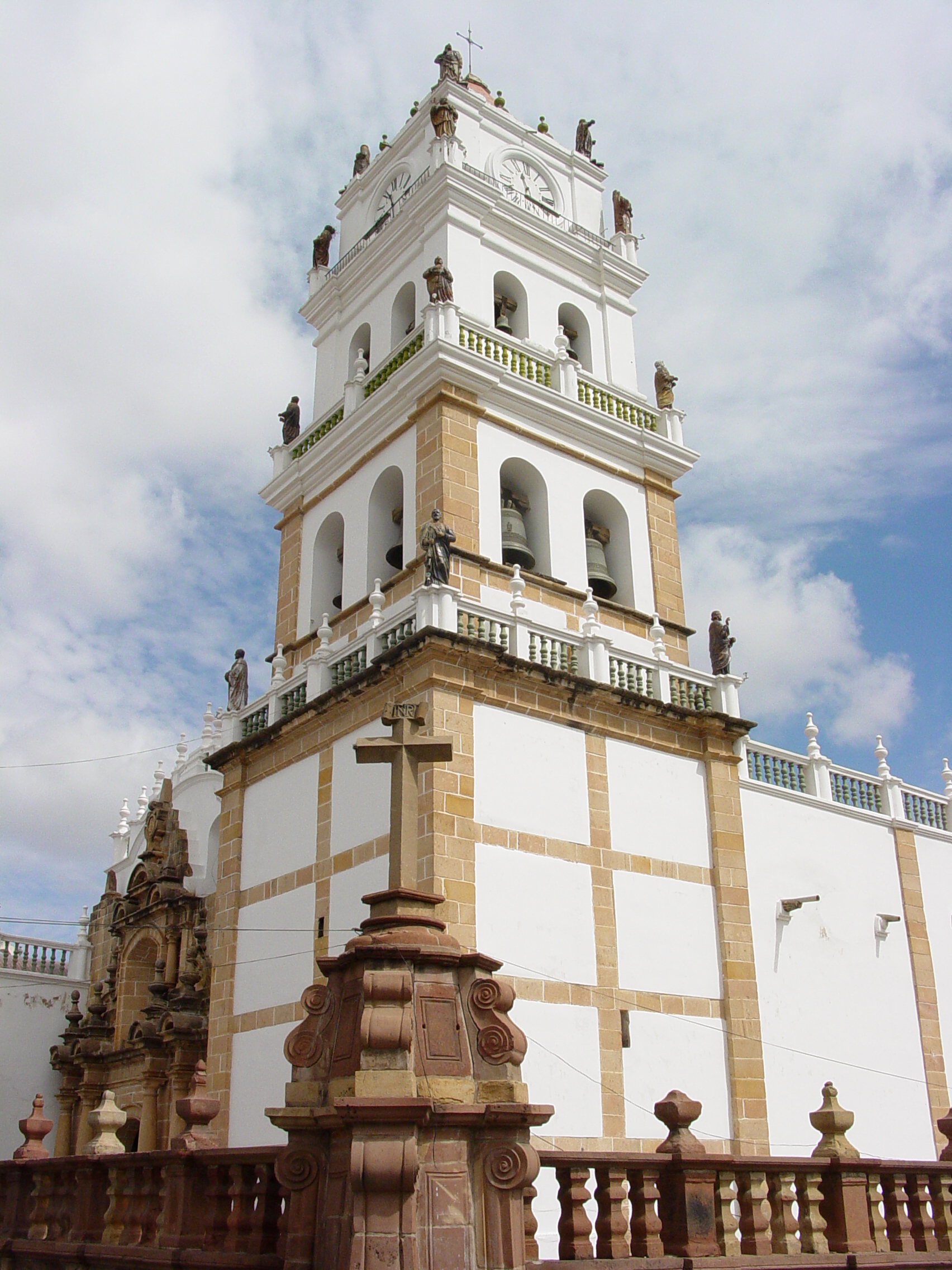Bolivia
 Bolivia,; ; ; ; }} officially the Plurinational State of Bolivia, }} is a landlocked country located in central South America. The country features diverse geography, including vast Amazonian plains, tropical lowlands, mountains, the Gran Chaco Province, warm valleys, high-altitude Andean plateaus, and snow-capped peaks, encompassing a wide range of climates and biomes across its regions and cities. It includes part of the Pantanal, the largest tropical wetland in the world, along its eastern border. It is bordered by Brazil to the north and east, Paraguay to the southeast, Argentina to the south, Chile to the southwest, and Peru to the west. The seat of government is La Paz, which contains the executive, legislative, and electoral branches of government, while the constitutional capital is Sucre, the seat of the judiciary. The largest city and principal industrial center is Santa Cruz de la Sierra, located on the Llanos Orientales (eastern tropical lowlands), a mostly flat region in the east of the country with a diverse non-Andean culture.
Bolivia,; ; ; ; }} officially the Plurinational State of Bolivia, }} is a landlocked country located in central South America. The country features diverse geography, including vast Amazonian plains, tropical lowlands, mountains, the Gran Chaco Province, warm valleys, high-altitude Andean plateaus, and snow-capped peaks, encompassing a wide range of climates and biomes across its regions and cities. It includes part of the Pantanal, the largest tropical wetland in the world, along its eastern border. It is bordered by Brazil to the north and east, Paraguay to the southeast, Argentina to the south, Chile to the southwest, and Peru to the west. The seat of government is La Paz, which contains the executive, legislative, and electoral branches of government, while the constitutional capital is Sucre, the seat of the judiciary. The largest city and principal industrial center is Santa Cruz de la Sierra, located on the Llanos Orientales (eastern tropical lowlands), a mostly flat region in the east of the country with a diverse non-Andean culture.The sovereign state of Bolivia is a constitutionally unitary state divided into nine departments. Its geography varies as the elevation fluctuates, from the western snow-capped peaks of the Andes to the eastern lowlands, situated within the Amazon basin. One-third of the country is within the Andean mountain range. With an area of , Bolivia is the fifth-largest country in South America after Brazil, Argentina, Peru and Colombia, and, alongside Paraguay, is one of two landlocked countries in the Americas. It is the largest landlocked country in the Southern Hemisphere. The country's population, estimated at 12 million, is multiethnic, including Amerindians, Mestizos, Asians, Arabs, Jews, and the descendants of Europeans and Africans. Spanish is the official and predominant language, although 36 indigenous languages also have official status, of which the most commonly spoken are Guaraní, Aymara, and Quechua.
Centuries prior to Spanish colonization, much of what would become Andean Bolivia formed part of the Tiwanaku polity, which collapsed around 1000 AD. The Colla–Inca War of the 1440s marked the beginning of Inca rule in western Bolivia. The eastern and northern lowlands of Bolivia were inhabited by independent non-Andean Amazonian and Guaraní tribes. Spanish conquistadores, arriving from Cusco, Peru, forcibly took control of the region in the 16th century.
During the subsequent Spanish colonial period, Bolivia was administered by the Real Audiencia of Charcas. Spain built its empire in large part upon the silver that was extracted from Cerro Rico in Potosí. Following an unsuccessful rebellion in Sucre on May 25, 1809, sixteen years of fighting would follow before the establishment of the Republic, named for Simón Bolívar. Over the course of the 19th and early 20th centuries, Bolivia lost control of several peripheral territories to neighboring countries, such as Brazil's of the Acre territory, and the War of the Pacific (1879), in which Chile seized the country's Pacific coastal region.
20th century Bolivia experienced a succession of military and civilian governments until Hugo Banzer led a U.S.-backed coup d'état in 1971, replacing the socialist government of Juan José Torres with a military dictatorship. Banzer's regime cracked down on left-wing and socialist opposition parties, and other perceived forms of dissent, resulting in the torturing and murders of countless Bolivian citizens. Banzer was ousted in 1978 and, twenty years later, returned as the democratically elected President of Bolivia (1997–2001). Under the 2006–2019 presidency of Evo Morales, the country saw significant economic growth and political stability but was also accused of democratic backsliding, and was described as a competitive authoritarian regime. Freedom House classifies Bolivia as a partly-free democracy as of 2023, with a 66/100 score.
Modern Bolivia is a member of the Non-Aligned Movement (NAM), Organization of American States (OAS), Amazon Cooperation Treaty Organization (ACTO), Bank of the South, ALBA, the Union of South American Nations (USAN), and Southern Common Market (). Bolivia remains a developing country, and the second-poorest in South America, though it has slashed poverty rates and now has one of the fastest-growing economies on the continent (in terms of GDP). Its main economic resources include agriculture, forestry, fishing, mining, and goods such as textiles and clothing, refined metals, and refined petroleum. Bolivia is very geologically rich, with mines producing tin, silver, lithium, and copper. The country is also known for its production of coca plants and refined cocaine. In 2021, estimated coca cultivation and cocaine production was reported to be 39,700 hectares and 317 metric tons, respectively. Provided by Wikipedia
